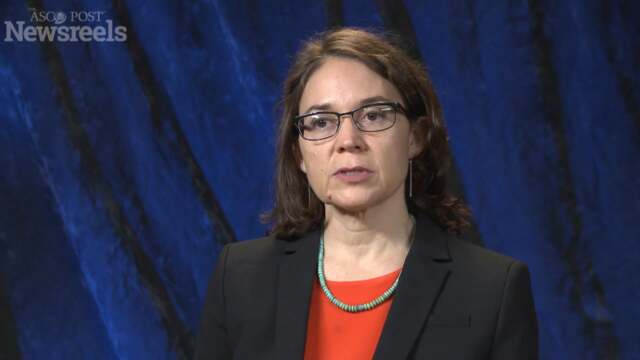Charles D. Blanke, MD, on Oregon’s Death With Dignity Act
2016 Palliative Care in Oncology Symposium
Charles D. Blanke, MD, of the Oregon Health & Science University and Southwest Oncology Group, discusses the nearly 20 years’ experience with Oregon’s Death With Dignity (DWD) Act, a voter initiative that led to the first such law enacted in the United States (Abstract 44).
Emily Haozous, PhD, RN, of the University of New Mexico, discusses health disparities and cultural differences in palliative and end-of-life care, with case study examples drawn from American Indian communities.
Tracy A. Balboni, MD, MPH, of the Dana-Farber Cancer Institute, talks about how to preserve quality of life in the presence of complex spinal lesions, including novel ways to assess spinal instability and treat metastases.
Eduardo Bruera, MD, of The University of Texas MD Anderson Cancer Center, discusses the need for outpatient palliative care programs to monitor and support these complex patients and their family members.
Joseph A. Greer, PhD, of Massachusetts General Hospital, discusses the development of a mobile application to address treatment adherence and symptoms (Abstract 104).
Eileen Danaher Hacker, PhD, APN, AOCN, of the University of Illinois at Chicago, discusses study findings that show improvement in physical activity, fatigue, muscle strength, and functional ability (Abstract 190).





